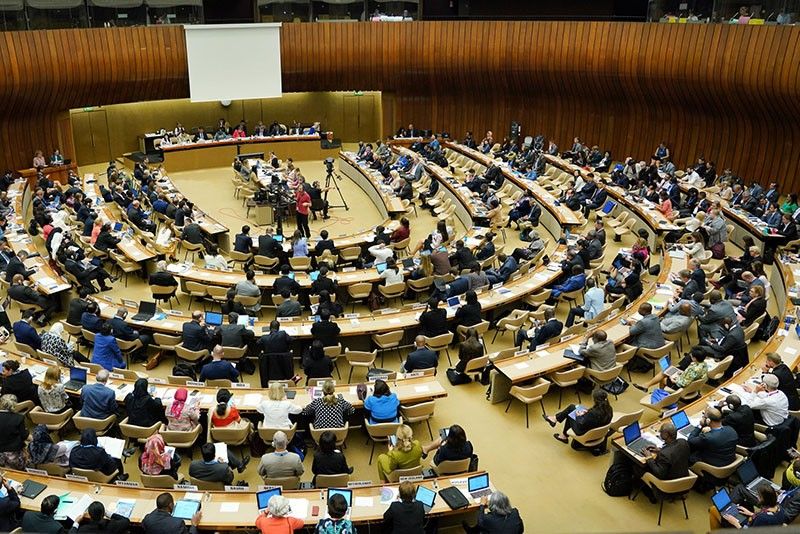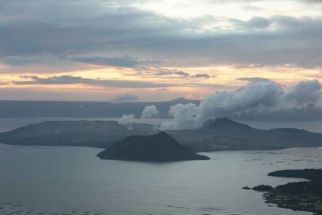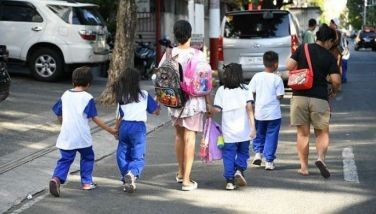Geopolitical tussles seen in next week’s World Health Assembly

ADELAIDE, Australia (The Filipino Connection) — A pesky pandemic that a novel coronavirus wrought will overlook anticipated policy reform and geopolitical efforts of countries that will virtually convene for the 73rd World Health Assembly starting this Monday.
But this edition of the annual centerpiece event of the World Health Organization (WHO) is not only trying to immediately address SARS-CoV-2. The agency’s credibility is at stake as some countries have slammed the United Nations agency on how it is handling transparency issues surrounding COVID-19’s spread.
Given the urgency of finding a vaccine for COVID-19, WHO said the May 18-19 Assembly (sandwiched into two days instead of the usual five) will be “a virtual de minimis meeting.” This means most agenda items of the Assembly will be deferred to, or be resumed at, another WHO meeting later this year.
The two general agenda items will be the election of the Assembly’s officers and COVID-19.
The latest agenda items do not mention the International Health Regulations (IHR), the central policy framework of the WHO, and its assessment given the pandemic. There’s no word if the IHR, which has a history of revisions given the outbreaks of new diseases, will be amended this year.
WHO’s IHR Emergency Committee met virtually last April 30 and advised the WHO to still steer the global efforts of countries’ health systems against COVID-19; identify the zoonotic source of SARS-CoV-2; and handle the solidarity clinical trials for candidate vaccines for COVID-19.
Jostling
The meeting of member-countries will expectedly discuss the WHO’s future with no more funding from the United States (as ordered by US President Donald Trump mid-April), as well as how some member-countries will try to persuade the Assembly to hold China into account.
India is the incoming chair of the Assembly, this role being a three-year term.
This week alone, the American and Chinese geopolitical blocs had been courting countries ahead of the Assembly.
US Secretary of State Mike Pompeo convened a virtual meeting with fellow foreign ministers of Australia, Brazil, Israel, Japan and South Korea last May 12 to discuss a reform agenda for the WHO. These countries agreed to demand the WHO for transparency and accountability when measures to curb the pandemic are to be reviewed.
China’s name wasn’t mentioned in the said virtual meeting, The Hindustan Times reported, although calls for transparency were obviously linked to Beijing’s efforts on revealing the extent of the pandemic.
On May 13, China convened separate virtual meetings with ten Pacific Island states and 17 Central and Eastern European countries to exchange countries’ efforts to combat COVID-19. The Pacific countries, says a Chinese state media report, were said to oppose “the practice of politicizing, stigmatizing and labeling the virus” while reiterating “their firm support to the One-China principle.”
On May 14, a virtual meeting of the Shanghai Cooperation Organization (SCO) saw Russia and China discuss suggestions that will be put forward at next week’s Assembly. (SCO is said to be the Asian version of the North American Treaty Organization or NATO.)
India was present in the meetings convened by both Secretary Pompeo and by the SCO.
“India will lead the WHO for three years, so it now has the opportunity to rescue the organization from the battle that it is currently caught in,” Mohamed Zeeshan wrote for The Diplomat.
“But New Delhi would have to do this while upholding its own independence, interests and credibility as an emerging global power. For years, India has avoided such sensitive decisions by walking the tightrope.”
China has opposed the participation of Taiwan as an observer of next week’s festivities given the former’s “One-China policy.” In retaliation, the US is pushing for Taiwan’s participation given the country’s progressive efforts to stem the spread of COVID-19 there.
Taiwan last joined the Assembly as an observer in 2016 after first joining there in 2009.
Disputes
Last April 14, Trump ordered to temporarily stop American funding of the WHO (annual amount: US$400 million, or 15% of the WHO’s US$4.8 billion budget). This is given the US government’s “deep concerns whether America’s generosity has been put to the best use possible.”
Trump also accused WHO, led by Director-General Tedros Adhanom Ghebreysus, of “severely mismanaging and covering up the spread of the coronavirus.” United Nations Secretary-General Antonio Gutierres is saddened by Trump’s decision, saying the ongoing pandemic “is not the time” to reduce the resources of the global health agency.
Australian Prime Minister Scott Morrison, on April 23rd, said that his country, a member of the Assembly’s executive committee, will push for changes in the WHO. No single country is also being singled out in Australia’s call to review WHO’s enforcement of the IHR given the pandemic, says Australian Foreign Minister Marise Payne.
But Russia, on May 15, called American accusations of China spreading COVID-19 “groundless.” Deputy Foreign Minister Sergei Ryabkov was quoted in a conference saying: “There is no reason to blame China for doing something untimely, wrong or inadequate.”
As for the Philippines, Health Secretary and the WHA’s 2018 Vice President for the Western Pacific Region Francisco Duque III said the Philippines “will raise issues with regard to COVID-19.”
He told a May 13 virtual press conference that the Department of Health (DOH) would try to find out if other countries “can facilitate the transfer of knowledge” to improve Philippine responses versus COVID-19.
Duque also said the Philippines will participate in a WHO-facilitated solidarity trial to test some candidate vaccines. Among the vaccines Duque mentioned are Remdesivir, Lopinavir, Ritonavir and Interferon beta-1a.
Philippine participation in the WHA comes at the heels of beginning the implementation of Republic Act 11223 or the Universal Health Care law, while the country tussles with the ongoing pandemic.
As of May 14, there are 4,526,905 cases of COVID-19 worldwide. Some 303,405 of these patients have died and 1,703,604 patients have recovered.
The Philippines has 11,876 cases, including 790 deaths and 2,337 recovered patients as of May 14.
The International Health Regulations were first adopted by the WHA in 1969 to cover six diseases. Amendments in 1973 and 1981 focused on cholera, yellow fever and plague. A substantial revision of the IHR was made in 1995 given increasing international travel and trade and rising transmission of diseases.
The final revision of the IHR was done in 2005 given the Severe Acute Respiratory Syndrome (SARS) outbreak in 2003.
The Filipino Connection is the regional partner of Philstar.com.
- Latest
- Trending





























